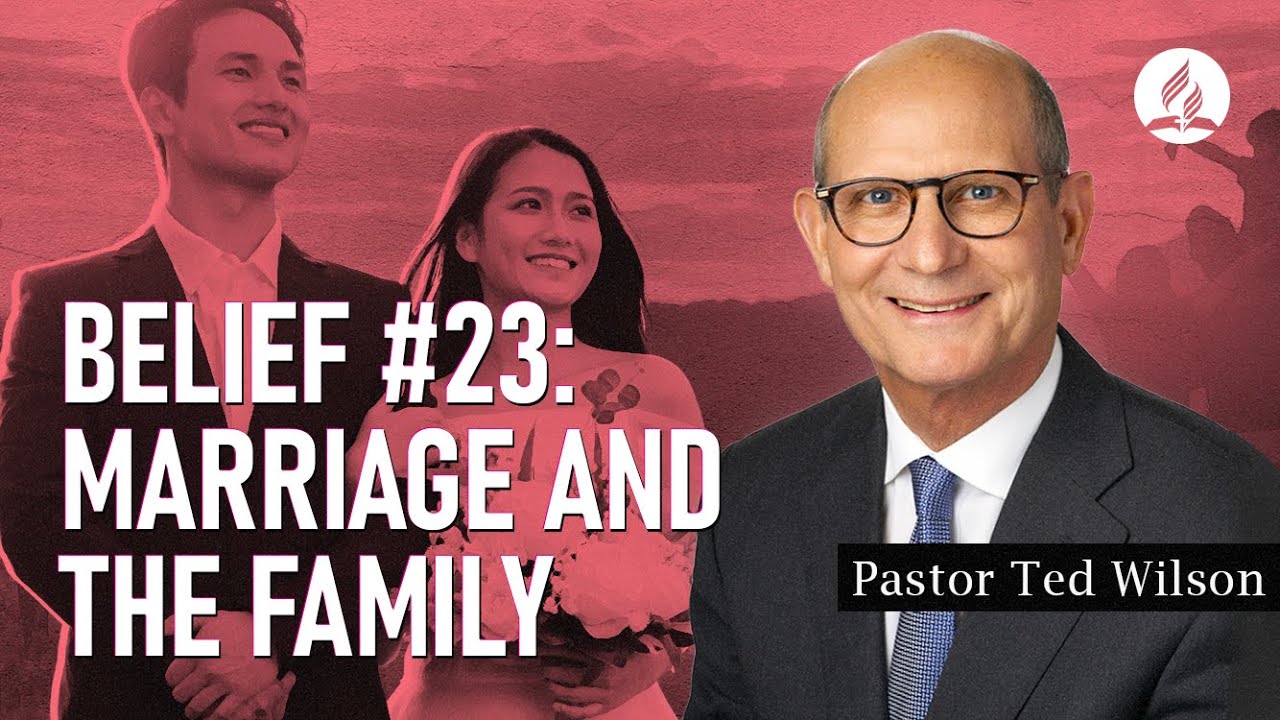
This week, Pastor Ted Wilson and his wife, Nancy, talk about one of the wonderful gifts God has given humanity—the gift of love that comes through marriage and the family—constituting the twenty-third fundamental belief of the Seventh-day Adventists.
On the sixth day, God created the first human on earth—Adam. But He realized that “it is not good that man should be alone; I will make him a helper comparable to him” (Genesis 2:18).
So, when Adam slept, God took a rib from his side and formed a woman—Eve. Seeing her when he woke up, Adam declared, “This is now bone of my bones and flesh of my flesh; she shall be called Woman because she was taken out of Man” (verse 23).
And God blessed this first couple, telling them to “be fruitful and multiply” (Genesis 1:28).
On this note, the Bible sets the stage for future marriages, saying, “Therefore a man shall leave his father and mother, and be joined to his wife, and they shall become one flesh” (Genesis 2:24). This concept of unity includes not only the sexual union God designed for a man and a woman but also the unity of the mind and spirit that grows with time and supports the physical side of the relationship.
On page 18 of his book, I Married You, Walter Trobisch explains, “Two persons share everything they have, not only their bodies, not only their material possessions, but also their thinking and their feeling, their joy and their suffering, their hopes, and their fears, their successes and their failures. ‘To become one flesh’ means that two persons become completely one with body, soul, and spirit, and yet there remain two different persons.”
Unfortunately, in this sinful world, many people suffer from broken families and marriage as Satan tries to destroy relationships. But God came to heal and restore us, bringing beauty, joy, love, and fellowship.
In line with this, the Seventh-day Adventist Fundamental Belief #23 states, “Marriage was divinely established in Eden and affirmed by Jesus to be a lifelong union between a man and a woman in loving companionship.”
It goes on, “For the Christian, a marriage commitment is to God as well as to the spouse, and should be entered into only between a man and a woman who share a common faith. Mutual love, honor, respect, and responsibility are the fabric of this relationship, which is to reflect the love, sanctity, closeness, and permanence of the relationship between Christ and His church.”
“Regarding divorce, Jesus taught that the person who divorces a spouse, except for fornication, and marries another, commits adultery. Although some family relationships may fall short of the ideal, a man and a woman who fully commit themselves to each other in Christ through marriage may achieve loving unity through the guidance of the Spirit and the nurture of the church.”
“God blesses the family and intends that its members shall assist each other toward complete maturity. Increasing family closeness is one of the earmarks of the final gospel message.”
It concludes, “Parents are to bring up their children to love and obey the Lord. By their example and their words, they are to teach them that Christ is a loving, tender, and caring guide Who wants them to become members of His body, the family of God which embraces both single and married persons.”
Families, including that of the church, are to be a blessing to their members and other people. God intends for them to be strongholds of safety, encouragement, love, fellowship, nurturing, and growth.
As we keep our eyes on God, let us share to others His love—a love that is patient, is kind, does not envy, does not boast, is not proud, does not dishonor others, is not self-seeking, is not easily angered, keeps no record of wrongs, does not delight in evil but rejoices with the truth, always protects, always trusts, always hopes, always perseveres, and never fails (1 Corinthians 13:4-8).
In closing, Pastor Ted quotes from the Adventist Home, page 33: “The work to which we are called does not require wealth or social position or great ability. It requires a kindly, self-sacrificing spirit and a steadfast purpose. A lamp, however small, if kept steadily burning, may be the means of lighting many other lamps.”
The book continues, “Our sphere of influence may seem narrow, our ability small, our opportunities few…yet wonderful possibilities are ours through a faithful use of the opportunities of our own homes.”
It concludes, “If we will open our hearts and homes to the divine principles of life, we shall become channels for currents of life-giving power. From our homes will flow streams of healing, bringing life, and beauty, and fruitfulness where now are barrenness and dearth.”
To learn more about family and marriage, visit www.family.adventist.org.
(Visited 44 times, 1 visits today)



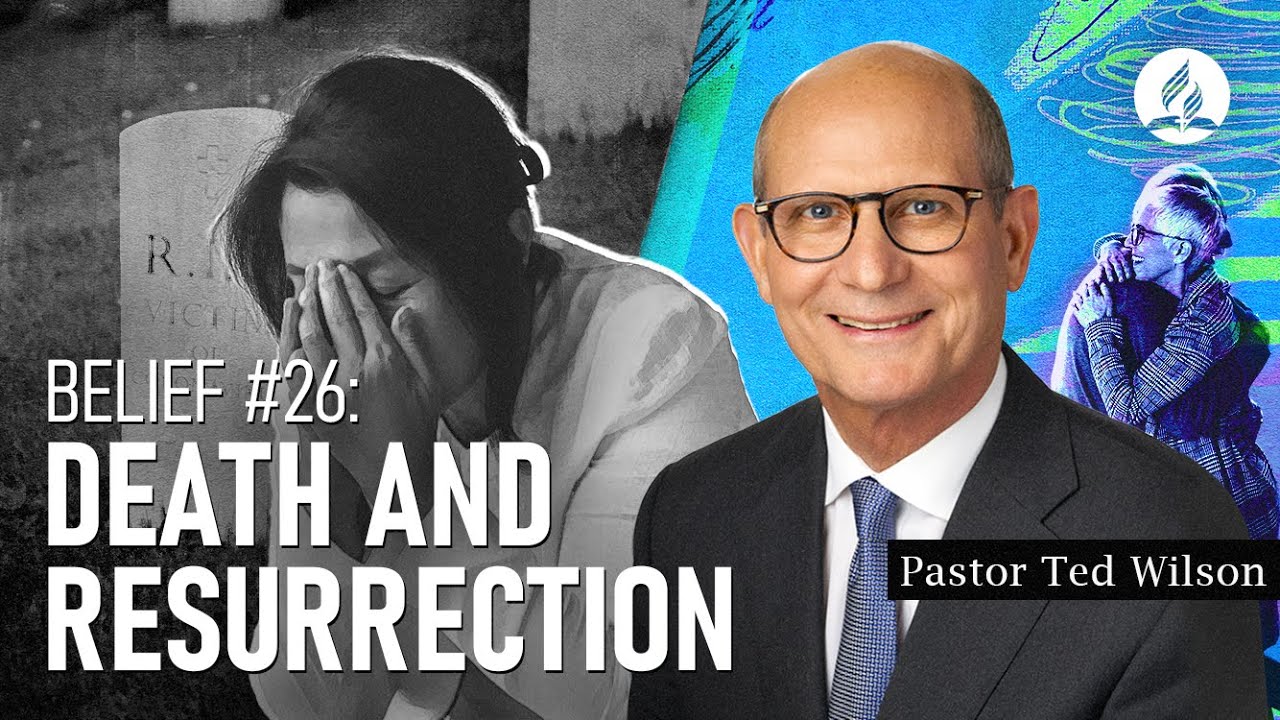
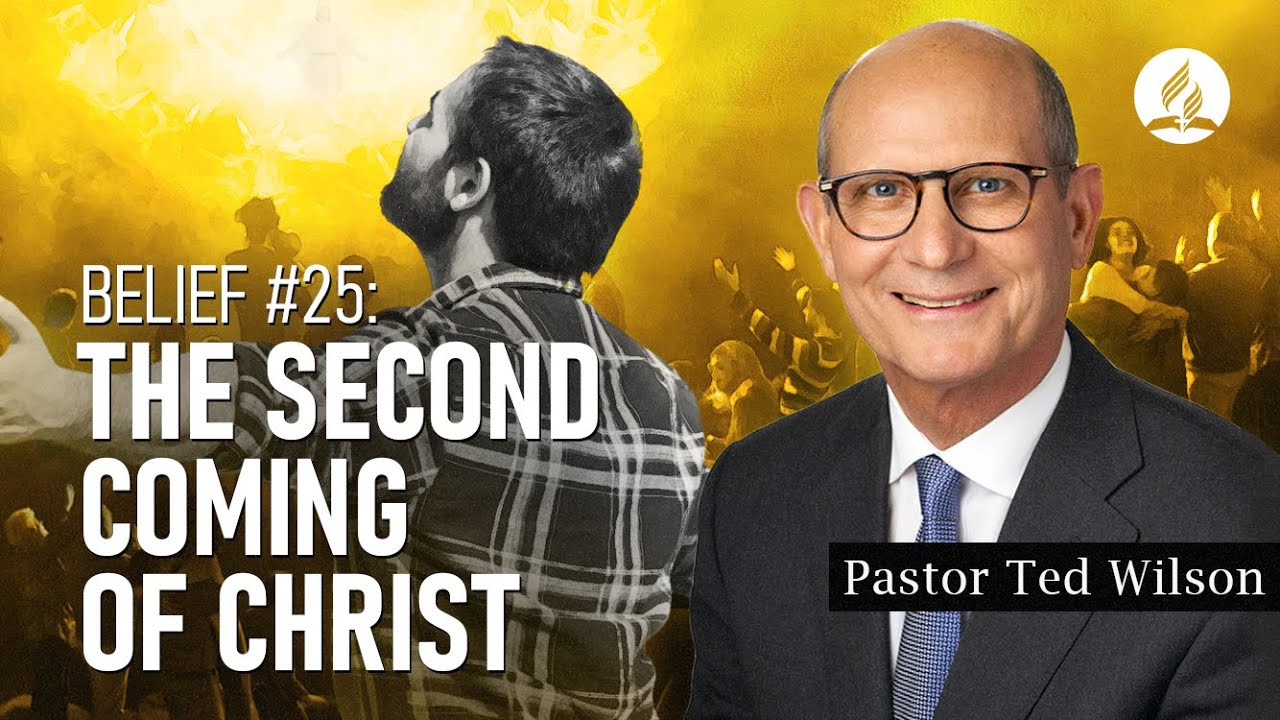
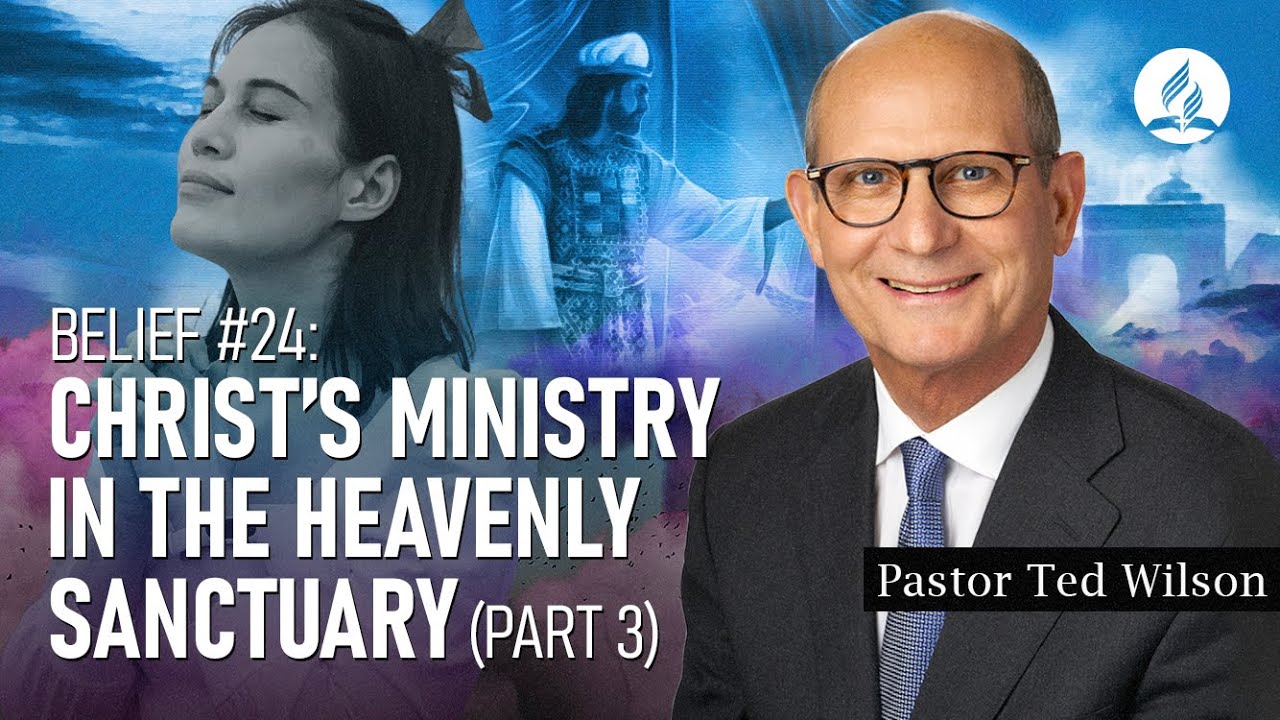
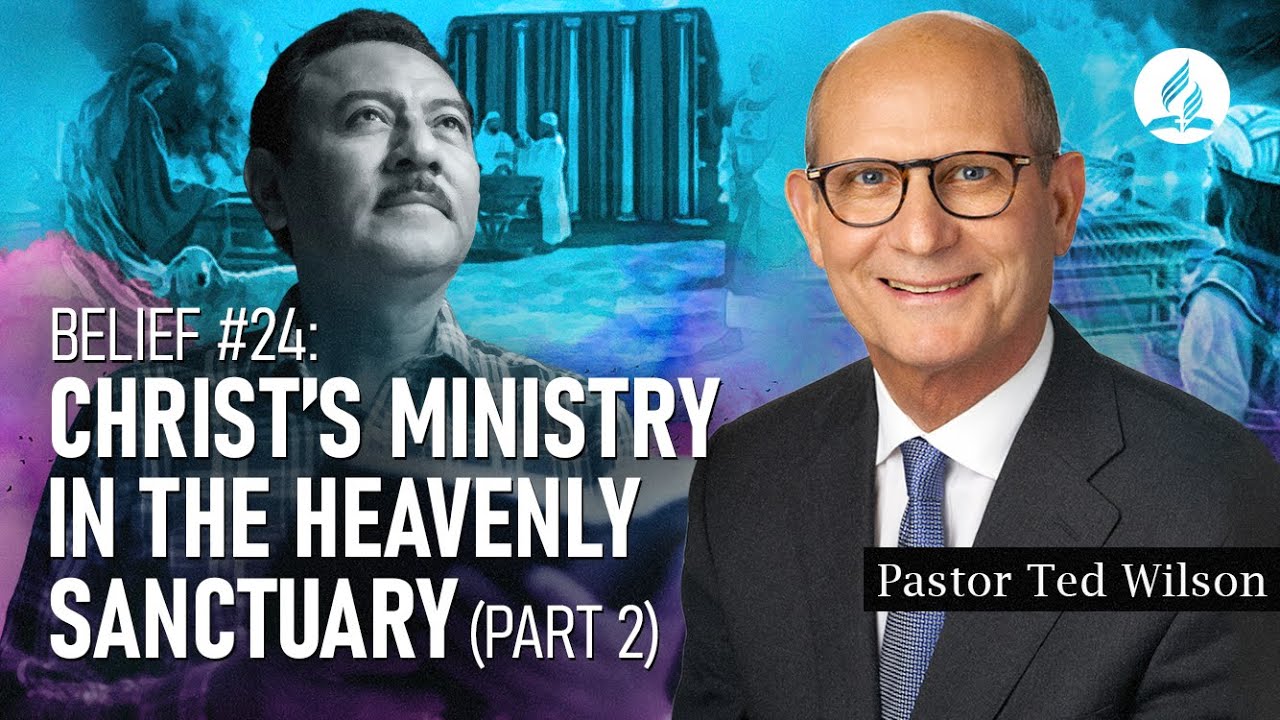
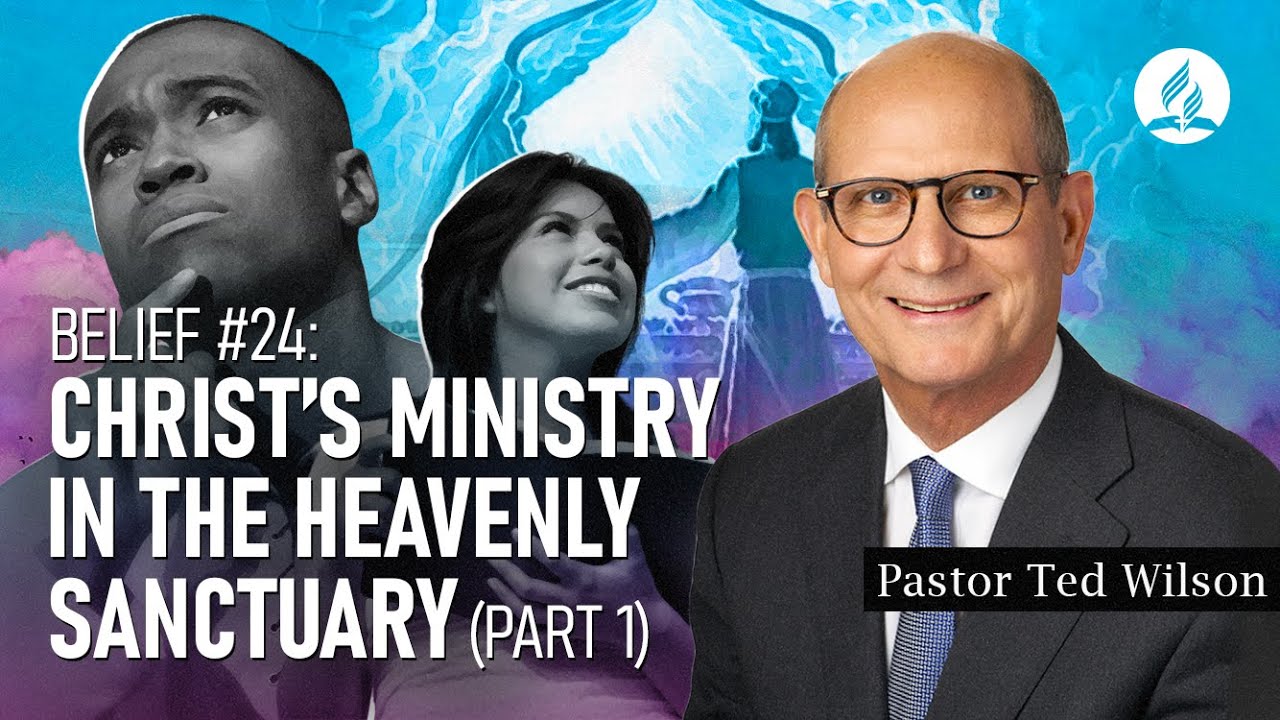
![Belief #22: Christian Behavior [How Does God Want Us to Live Life?] – Pastor Ted Wilson](https://fulfilleddesire.net/wp-content/uploads/2023/05/belief-22-christian-behavior-how.jpg)
![Belief #21: Stewardship [What is It and What Does God Teach Us?] – Pastor Ted Wilson](https://fulfilleddesire.net/wp-content/uploads/2023/05/belief-21-stewardship-what-is-it.jpg)
![Belief #20: Sabbath [What Does the Bible Teach Us About It?] – Pastor Ted Wilson](https://fulfilleddesire.net/wp-content/uploads/2023/05/belief-20-sabbath-what-does-the.jpg)
![Belief #19: The Law of God [What is It and How Significant is It to Us?] – Pastor Ted Wilson](https://fulfilleddesire.net/wp-content/uploads/2023/05/belief-19-the-law-of-god-what-is.jpg)
![Belief #18: Gift of Prophecy [What is It?] – Pastor Ted Wilson](https://fulfilleddesire.net/wp-content/uploads/2023/05/belief-18-gift-of-prophecy-what.jpg)
![Belief #17: Spiritual Gifts and Ministries [What Does the Bible Say?] – Pastor Ted Wilson](https://fulfilleddesire.net/wp-content/uploads/2023/05/belief-17-spiritual-gifts-and-mi.jpg)
![Belief #16: The Lord’s Supper [What Does the Bible Say?] – Pastor Ted Wilson](https://fulfilleddesire.net/wp-content/uploads/2023/05/belief-16-the-lords-supper-what.jpg)
![Belief #15: Baptism [What Does the Bible Want Us To Know About It?] – Pastor Ted Wilson](https://fulfilleddesire.net/wp-content/uploads/2023/05/belief-15-baptism-what-does-the.jpg)
![Belief #14: Unity in Christ [What Does the Bible Teach Us?] – Pastor Ted Wilson](https://fulfilleddesire.net/wp-content/uploads/2023/05/belief-14-unity-in-christ-what-d.jpg)
![Belief #13: The Remnant [What is It and Its Mission?] – Pastor Ted Wilson](https://fulfilleddesire.net/wp-content/uploads/2023/05/belief-13-the-remnant-what-is-it.jpg)
![Belief #12: Church [What Does the Bible Teach Us About It?] – Pastor Ted Wilson](https://fulfilleddesire.net/wp-content/uploads/2023/05/belief-12-church-what-does-the-b.jpg)
![Belief #11: Growing in Christ [What Does It Mean and How Does It Happen?] – Pastor Ted Wilson](https://fulfilleddesire.net/wp-content/uploads/2023/05/belief-11-growing-in-christ-what.jpg)
![Belief #10: Salvation [How Can We Have It?] – Pastor Ted Wilson](https://fulfilleddesire.net/wp-content/uploads/2023/05/belief-10-salvation-how-can-we-h.jpg)